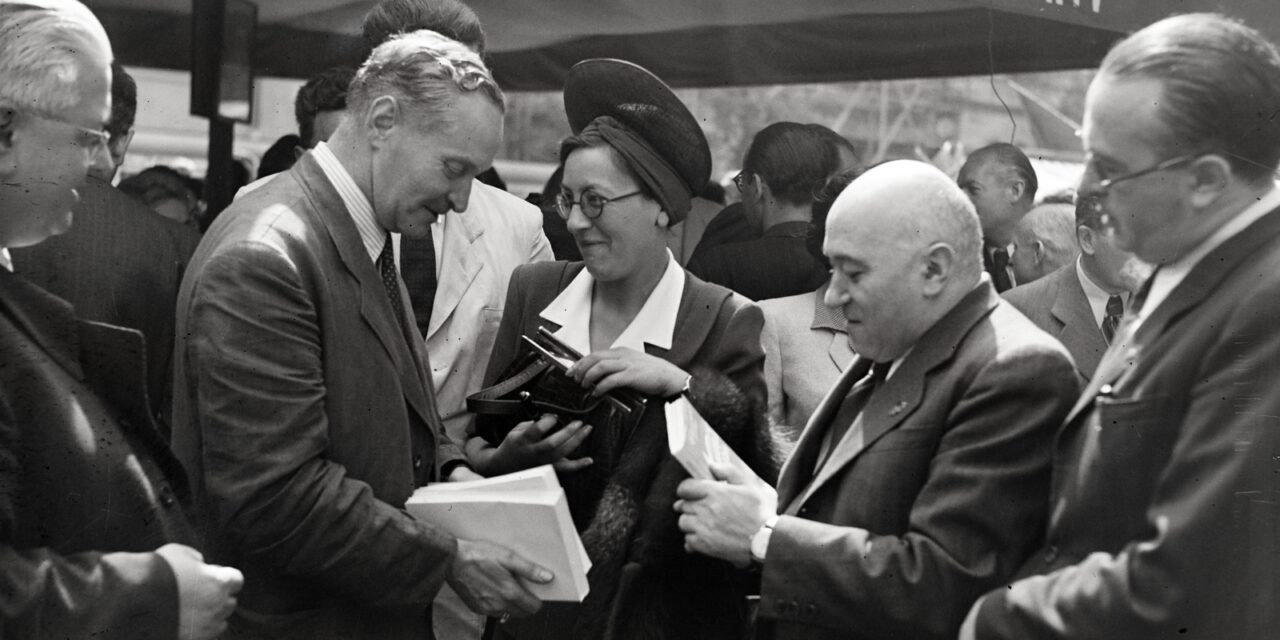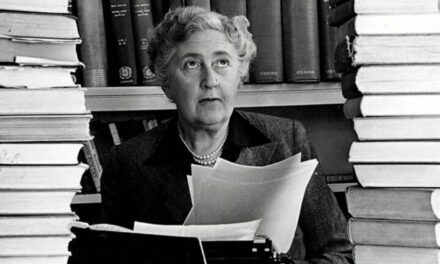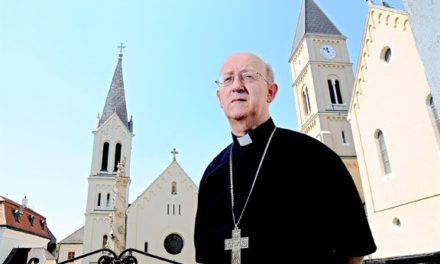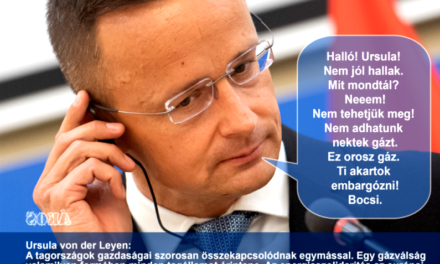The historian Zsuzsanna Borvendég's series was originally published on the PestiSrácok website, but there are certainly those who missed it. But those who haven't read all the parts should also read it again. Knowing the whole picture, can we understand how we got here?
István Bródy , the son of the well-known writer, set off for the West German occupation zones in the spring of 1947 with some product samples in his bag to prepare the ground before the start of official economic negotiations. His client Zoltán Vas , a powerful economic politician of the Communists, and his negotiating partners were war criminals who were forgiven in the name of materialism, i.e. money. The heroes of anti-fascism also cheerfully traded "goodbye notes", whether it was about the crimes of Nazism or communism.
"In this house and in some other buildings sit one thousand six hundred German officials [...], of course, those who were the same in the old world, first under William, then under Weimar, and finally under Hitler. According to one newspaper, one thousand out of sixteen hundred still have their Nazi party cards.
Nazi or not Nazi: at eleven in the morning, without sleep, with a glass of water in my stomach, I had to start work, which is why I came here and started on the first floor of the big house to find the German man who has the right to say to me in the name of his people (or rather half of his people): is it necessary and what from Hungary and what can Germany give for this?"
Bródy therefore shrugged off the question of whether he was a Nazi or not, while trivializing the guilt of his interlocutors by conflating him with the thousands of other ordinary officials who were permanent soldiers of the frequently changing system above them, even against their will. But Bródy did not meet the "ranked bucks" of the civil service, but people who were personally burdened with the crime of genocide.
He also met one of the main people responsible for deportations in Hungary
The gentleman with whom I started the questioning is none other than von Werkmeister, the former counselor of the German embassy in Budapest, Bródy wrote. Indeed, Karl Werkmeister spent years representing the Third Reich in Budapest.
Ferenc Zsindely , in the recently published diary of the Minister of Trade and Transport of the Kállay government (Minister on the front line. Diary of Ferenc Zsindely. The introductory study and notes Nóra Szekér .) described Werkmeister in an entry from 1941:
This Werkmeister is a big pig. It is probably a lost enemy of the Hungarians, and it is certainly of the government. [...] Werkmeister is anything but a master. Hungry, hoarder, greedy, glutton.
This greedy scumbag served as a diplomat in Budapest between 1936 and 1944.
After the German occupation Veesenmayer's deputy, he prepared the execution of the Hungarian Jewish deportations, and also played a role in the October 1944 Arrow coup. Werkmeister avoided being held accountable after the war, he became a key figure in German economic management, he was the head of the institution that managed the distribution and use of Marshall aid. In 1954 he received one of the highest state honors of the Federal Republic of Germany, and in 1961 he was appointed ambassador to Stockholm.
Among Bródy's negotiating partners was Herbert Schellpeper , who spent a long time in our country during the war, "he managed the delivery of agricultural products to Germany". After 1945, he was imprisoned in an internment camp for a few months due to his role in the Nazi administration, but he was released at the initiative of the British - it is believed that one of the allied intelligence services managed to get him to cooperate, so he soon returned to the area in which he previously worked. Schellpeper was a decisive figure in Hungary's Western relations system at least until the mid-1950s, and the domestic foreign trade leadership sufficiently "rewarded" his diligent lobbying activities, with which he was able to create favorable conditions for his Hungarian clients.
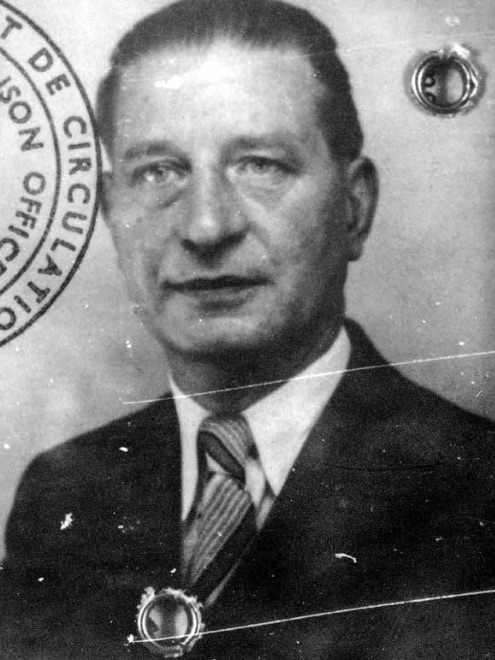
Image source: ÁBTL
The documents of the domestic intelligence show that on numerous occasions he obtained sensitive economic data and plans for them, or even made information available to the Hungarian side before a business negotiation, which provided them with a situational advantage during negotiations. Of course, he could pocket bribes for all this, but his ultimate motivation was presumably his hatred of America.
Along with his many previous party leaders, Schellpeper could not accept the dismemberment of his country, he regarded the American troops as foreign invaders, and he expected the possibility of reunification from the Soviet Union rather than from the United States. It is no wonder, then, that he liked to play around with the embargo and trade rules imposed by the USA.
Mr. Englert, one of Hungary's "bleeders"
Hans Englert was also on the list that Zoltán Vas' emissary had to visit. He spoke flawless Hungarian, as he had previously spent 12 years in Budapest as a commercial attaché of the Third Reich. Trade advisor Engler László Petúr in 1945. The newspaper says:
He mainly advocated agricultural exports, and incidentally, he was the leader of the national socialist outlook on life of the Germans in Budapest.
According to the author of the article, Englert also played a role in making the country's oil reserves available to the Germans at any time , regardless of the needs of Hungarian industry. But war crimes here or there, the business relationship between Bródy and Englert did not end in a single visit: after István Bródy arrived in the West German city as the first head of the Frankfurt trade office opened in 1949, the ex-Nazi economic diplomat became one of his most important business partners and assistants .
Bródy's father-in-law and mother-in-law were "killed" by his business partners
How did István Bródy , who not long before mourned his wife's parents who were killed in gas chambers, live to negotiate with people who even personally contributed to the unfathomable genocide? Fortunately, we don't have to guess, he gives an answer to this question himself in his already quoted article: "Then, after the robber-murderer attack, in which Hungary almost died, is it allowed for a person who was born here to work for our own to be planted in German soil and the German mothers should use our pens to fill their children with sweets? The answer to the question is that the law of life knows no other aspect than the materialistic, the natural. Whoever disobeys this law, be it a person or an entire nation, dies of heroism, emotion, pride, hideousness, hatred, or love.
The trick of washing the killers
Well, István Bródy didn't have to die like that. The self-excusing explanation vividly highlights the fact that the collective guilt proclaimed by the communists after the war was not simply an immoral basis for illegal harassment and abduction of innocents, but could also be used to cover up and excuse real crimes and real criminals.
They conflated the perpetrator and the victim, thereby trivializing the need for accountability. After all, in this case, the problem was not that German children had Hungarian pens in their pillows, but that while hundreds of thousands of innocent people were branded and punished, the real murderers were exempted from prosecution in the name of "materialism".
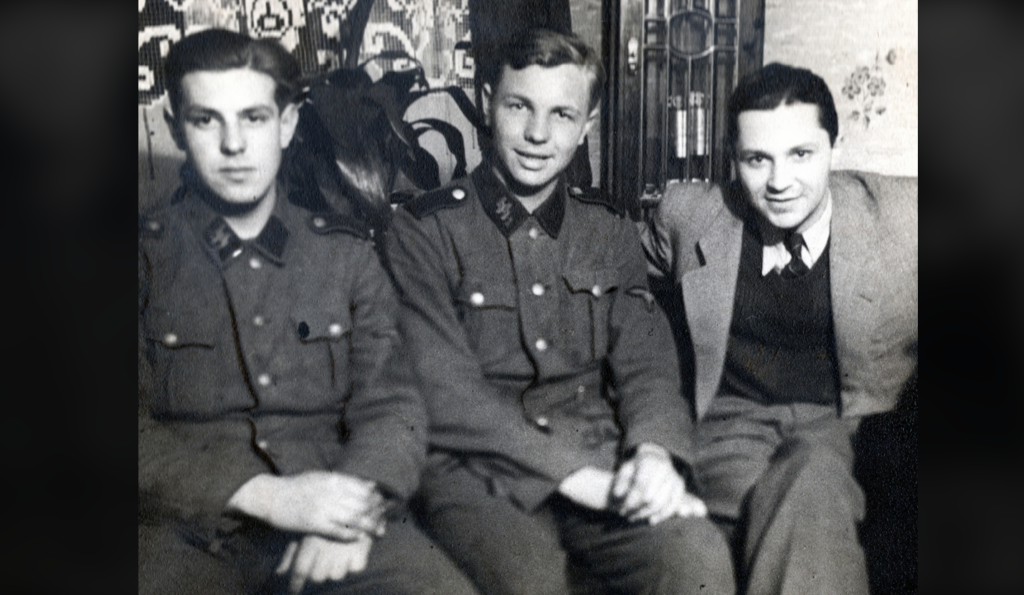
Nazis - illustration (image source: Fortepan)
The Bolshevik trick of the theory of collective guilt provided an opportunity for the seeming generosity with which the murderer was actually washed:
Let's allow the robber-murderer to take off his bloody clothes, put on fresh clothes, and if he doesn't have any, let's give him soap and towels from ours for the big cleaning , Bródy added. (I don't think I need to explain how painful it is that two years after the end of the Second World War, a man of Jewish origin wants to wash the real killers clean based on purely financial considerations. And with soap.)
István Bródy's journey in 1947 reached its goal. A few weeks later, an official delegation arrived in the American occupation zone and began negotiations with the above-mentioned persons on the details of annual trade agreements.
The key role of the Frankfurt office
The trade office in Frankfurt, which operated from 1949, was established to maintain the close economic relations that were developing. Of course, the place was also a secret service base, it played a prominent role in the construction of the foreign trade network , so the Frankfurt branch will return again and again in this series as one of the scenes of our stories. The first head of the commercial office was István Bródy, he founded the corruption network that dominated the Hungarian market after 1956.
Little is known about Bródy's further activities, his name is rarely mentioned in state security materials, even though he could not have ended up at the station in Frankfurt without a secret service background. In 1950, he was sent to Cuba, where he unsuccessfully tried to export Hungarian products; at that time, the companies of the island country were still reluctant to do business with the merchants of the satellite states. In 1951, István Bródy "defectioned", but almost no information about this has been found, all that can be known is that even before that, when he was transferred to Cuba, he took the documentation from the Frankfurt office with him.
Did he plan in advance to go over to the other side, that's why he took the branch's secret documents with him? Or was his escape just staged, and for the sake of greater credibility, he had the papers of the various agreements with him, so that he would have something to throw a bait to the enemy secret service? Either option is possible.
Years in Paris and then in Cuba
He first lived in Paris, then found a living in Cuba at a large company, where his task was to "from time to time compile economic-related news reviews from the world's most important newspapers", we can read in a eulogy published after his death.
Castro came to power, he settled in Brazil. Géza Deutsch , an entrepreneur from Hungary . Deutsch himself belonged to Zoltán Vas' circles in the post-war years; he was an employee of West Orient, a communist company specialized in smuggling, detailed in a previous section, and then became the director of the Grain Trading Company. He left Hungary in 1948 and started a new life in South America, founding his own business, the trading company Degeza.
Degeza gave work opportunities to several people who emigrated from our country, but it is typical that the former colleagues of Zoltán Vas (for example Péter Kelemen, Vas's secretary) were among Deutsch's closest contacts - at least according to the information of the state security.
István Bródy found a home in the United States after a few years in Brazil; He lived in Miami Beach, on the shores of the bay in a huge rental palace.
According to our observation, the Bródy Pistás lived well. He continued to receive his salary from the former Cuban company - we can read in his obituary. I wonder why the most likely nationalized company of the country that had become communist in the meantime could pay a journalist living in Miami? I can't answer the question.
Source: PestiSrácok
Author: historian Zsuzsanna Borvendég
(On the cover photo: Zoltán Vas (right) at the opening of the first "free" book week. Source: Fortepan)

